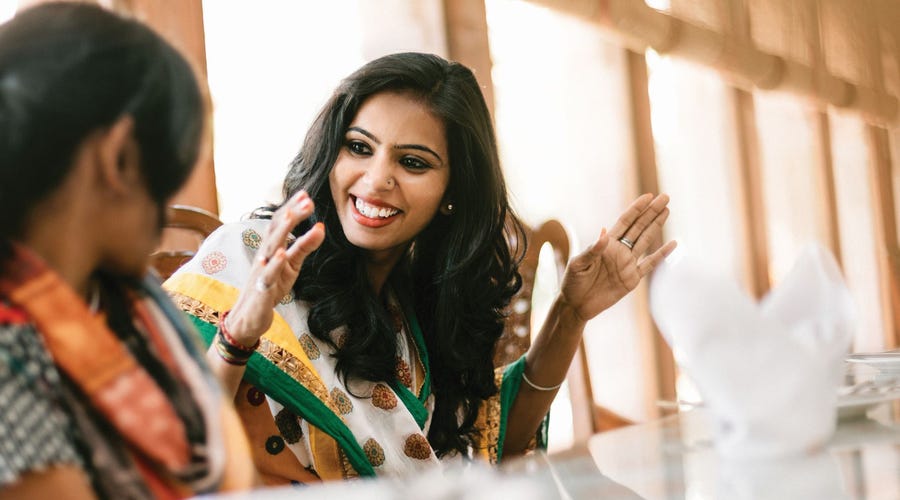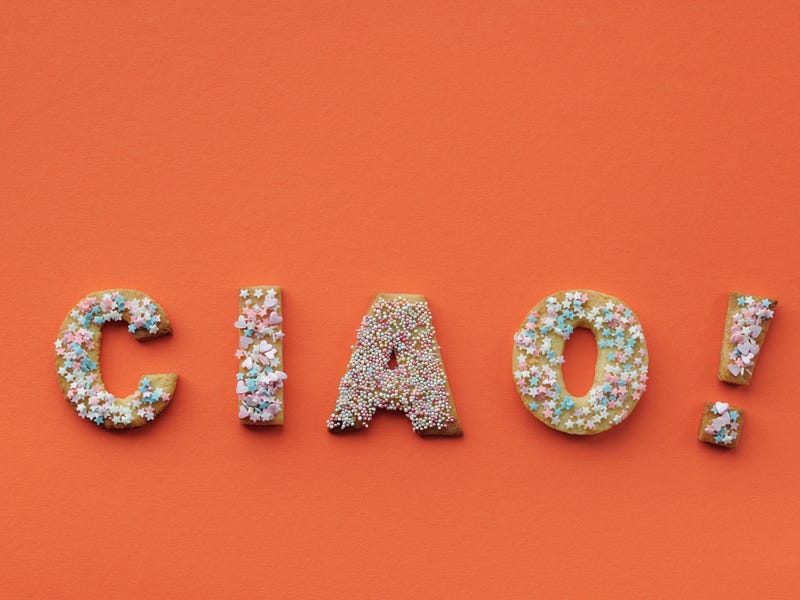As an avid traveler, I’ve realized that learning to say even a few basic words in the language of the country I’m traveling to can make a huge difference.
Learning basic words like “hello,” “thank you,” “excuse me” or yes and no in different languages can help you a ton during your travels! And even if you’re not a language geek like me, these words are pretty easy to learn in any language - and you can learn any language fast with a few good tips!
The truth is, learning how to say hello in the language of the country you’re traveling to, a person you’re doing business with, or even starting a friendship with, is fundamental to building solid relationships with people.
It's a common courtesy to greet people in their native language. Whether you're traveling or doing business, knowing how to say hello in another language shows that you take an interest in the culture and customs of others. Your message can be taken more seriously, and you might even receive better service!
So, in this article, we’ll cover how to say hello in 113 languages. We’ve also included a pronunciation column to help you learn how to pronounce these foreign words (some can be quite challenging!).
Hello in different languages
We can confidently say that there are at least 100 creative ways to say hello in English, 23 ways to say hello in French, and 77 unique ways to say hello in Spanish. Therefore, it goes without saying that we cannot cover all the possible greetings for each language in this article!
So, while there are many ways to say hello in different languages, ranging from formal to slang, we’re going to focus only on the most common ones.

Language | Most common way to say hello | Pronunciation |
|---|---|---|
Afrikaans | Hallo | HAH-low |
Albanian | Përshëndetje | per-shen-DEAT-ye |
Amharic | Iwi selami newi (እው ሰላም ነው) | ewe-selamee-nuhwee |
Arabic | Marhaba (مرحبًا) | mur-HAH-ba |
Armenian | Barev | bah-REV |
Aymara | Kamisaki | kah-mee-sah-kee |
Azerbaijani | Salam | sal-aam |
Basque | Kaixo | kia-show |
Belarusian | Vitaju (Вітаю) | veeta-you |
Bengali | Hyālō (হ্যালো) | HEL-oh |
Bosnian | Zdravo | ZDRAH-voh |
Bulgarian | Zdraveĭte (Здравейте) | ZDRAH-vey-teh |
Burmese | Haallo (ဟယ်လို) | HAAL-oo |
Cantonese | Nǐ hǎo (你好) | nie HAOW |
Catalan | Hola | OH-laa |
Cebuano | Kamusta | kuh-moos-tah |
Chichewa | Moni | moh-nee |
Corsican | Bonghjornu | bon-jornoo |
Croatian | Zdravo | ZDRAH-voh |
Czech | Ahoj | AH-hoy |
Danish | Hej | hey |
Dutch | Hallo | HAAL-oo |
English | Hello | hah-low |
Estonian | Tere | TEh-reh |
Ewe | Hello | hah-low |
Farsi (Persian) | Salām (سلام) | saol-AM |
Fijian | Bula | mbula |
Filipino | Kumusta | koo-moo-stah |
Finnish | Hei | hey |
French | Bonjour | bon-ZHOOR |
Gaelic (Irish) | Dia dhuit | DEE-ah GHWIT |
Galician | Ola | oh-laah |
Georgian | Gamarjoba (გამარჯობა) | gah-mahr-joh-bah |
German | Guten tag | goo-tenn tahk |
Greek | Geia (γεια) | gya |
Guarani | Mba'éichapa | mbah-ey-chapaah |
Haitian Creole | Bonjou | BON-joo |
Hawaiian | Aloha | AH-low-ha |
Hebrew | Shalom (שלום) | shah-LOHM |
Hindi | Namaste (नमस्ते) | nah-mah-steh |
Hmong | Nyob zoo | nyo-ZHOW |
Hungarian | Szia | SEE-ah |
Icelandic | Halló | HAL-oo |
Igbo | Ndewo | n-day-wo |
Ilocano | Hello | hah-low |
Indonesian | Halo | hah-low |
Italian | Ciao | chau |
Japanese | Konichiwa (こんにちは) | kohn-nee-chee-wah |
Kazakh | Sälemetsiz be (Сәлеметсіз бе) | |
Khmer | Suostei (សួស្តី) | suo-stey |
Kinyarwanda | Mwaramutse | mwah-rah-moot-seh |
Korean | Anyeong haseyo (안녕하세요) | AHN-young-ha-say-yo |
Kurdish | Slav | slawv |
Lao | Sabaidi (ສະບາຍດີ) | sa-baai-di |
Latin | Salve | sal-veh |
Latvian | Sveika (male) or Sveiks (female) | SVYEH-kah or SVYEH-eeks |
Lithuanian | Sveiki | svey-kee |
Luxembourgish | Moien | MOY-en |
Malagasy | Salama | sah-LAHM-ah |
Malay | Selamat pagi | suh-lah-met pah-gee |
Maltese | Bongu | BON-joo |
Mandarin | Nǐ hǎo (你好) | nie HAOW |
Maori | Kia ora | kya-orah |
Marathi | Namaskāra (नमस्कार) | nah-mahs-kah-rah |
Mongolian | Sain uu (сайн уу) | say-noo |
Nahuatl | Niltze Tialli Pialli | nilts-tialee-pialee |
Navajo | Ya’at’eeh | yah-tah-hey |
Nepali | Namaskāra (नमस्कार) | nah-mahs-kah-rah |
Norwegian | Hei | hay |
Pashto | Salam (سلام) | sah-laam |
Polish | Cześć | cheshch |
Portuguese | Olá | OH-laa |
Punjabi | Sata srī akāla (ਸਤ ਸ੍ਰੀ ਅਕਾਲ) | saht sree ah-kahl |
Oromo | Akkam | akh-kaam |
Quechua | Allianchu | eye-ee-anch-oo |
Romanian | Bunâ | boo-na |
Russian | Privet (Привет) | pree-VYEHT |
Samoan | Talofa | tah-low-fah |
Sepedi | Thobela | tob-eh-lah |
Serbian | Zdravo (Здраво) | ZDRAH-voh |
Sesotho | Dumela | doo-meh-lah |
Slovak | Ahoj | AH-hoy |
Slovenian | Zdravo | ZDRAH-voh |
Somali | Hello | hah-low |
Spanish | Hola | oh-laa |
Swahili | Jambo | jam-BOH |
Swedish | Hallå | hal-oa |
Tagalog | Kamusta | kuh-moos-tah |
Tahitian | Ia Orana | ya-rah-nah |
Taiwanese | Li-hó | lee-hoh |
Tamil | Vanakkam (வணக்கம்) | vaa–NAK–kam |
Thai | S̄wạs̄dī (สวัสดี) | sa-wat-dii |
Tibetan | Tashi delek | tah-shee del-ek |
Tongan | Mālō e lelei | mah-lo eh lei-lei |
Tsonga | Avuxeni | |
Turkish | Merhaba | mehr-hah-bah |
Ukrainian | Privit (привіт) | pree-VEET |
Urdu | Assalāmu Alaykum (السلام عليكم) | as-salam-u lay-kuhm |
Uzbek | Salom | shah-lohm |
Vietnamese | Xin chào | sin CHOW |
Welsh | Helo | hah-low |
Xhosa | Molo | moh-loh |
Saying “hello” in constructed languages
Did you know that apart from the whopping 7,100+ languages spoken in the world, there are also 900 constructed languages?
Unlike real languages, constructed languages (or conlangs) haven’t developed naturally but were intentionally created with a specific purpose in mind (usually as part of a work of fiction). Fantasy languages that we cover below also fall under this category.
| Constructed language | Hello |
|---|---|
| Esperanto | Saluton |
| Intelingua | Bon die |
| Lingua Franca Nova | Bon dia (Бон диа) |
| Novial | Kehan chhi (meaning how are you) |
Saying “hello” in fantasy languages
If you’re a Lord of the Ring, Game of Thrones, or Harry Potter fan, you’re in for a treat! Bring out your inner geek with these ways to say hello in fantasy languages from your favorite books, movies, and TV shows.
Want more? We've got an entire article dedicated to the most interesting and distinctive famous phrases from fictional languages here.

| Fantasy language | What we think is the right way to say hello | Spoken by: | Book/movie/show | Language created by: |
|---|---|---|---|---|
| Dothraki | M’atchomaroon | The indigenous habitents of the Dothraki Sea. | A Game of Thrones | David Peterson |
| Klingon | Nuqneh | The Klingons. | Star Trek | Dr. Marc Okrand |
| Parseltongue | Seethaaa-ssse-hathehhh-hathehhh-ayaeeh | Serpents, and descendents of Salazar Slytherin may inherit the ability to speak Parseltongue, although it's rare. Some notable exceptions to this rule include Harry Potter, and Ginny Weasley. | Harry Potter | Dr. Francis Nolan |
| Valyrian | Rytsas | High Valyrian is no longer used as a language of everyday communication, but rather as a language of learning and education among the nobility of Essos and Westeros, with much literature and song composed in High Valyrian. The Nine Free Cities of Essos speak locally evolved variants of Valyrian. | A Game of Thrones | David Peterson |
| Sindarin | A | Spoken by the Elves, called the Eledhrim [ɛˈlɛðrɪm] or Edhellim [ɛˈðɛlːɪm] in Sindarin. | Lord of the Rings | J.R.R. Tolkien |
| Quenya (Elvish) | Aiya | Spoken by the immortal Elves, called Quendi ('speakers') in Quenya. | Lord of the Rings | J.R.R. Tolkien |
| Na’vi | Kaltxì | The inhabitants of Pandora. | Avatar | Dr. Paul Frommer |
While we’re experts on many spoken languages, we can’t boast our knowledge of constructed languages. So, here are some YouTube videos that may help you learn how to pronounce “hello” in these languages:
- Basic Expressions in Klingon: https://www.youtube.com/watch?v=Bx0M7FaUAkU
- Learn to Speak Quenya in 8 Minutes: https://www.youtube.com/watch?v=uZkTOIFpZkg
- Valyrian Phrases: https://www.youtube.com/watch?v=33ZsUckmSZk
Valyrian Phrases!
It’s time to say “goodbye”!
After reading this guide, you can now greet people in over 100 languages! That’s something to be proud of. Knowing how to say hello in different languages has helped me make better connections during my travels (and not look like a lost tourist) and make lasting impressions on people from other countries and cultures. Sadly, every hello does come with a goodbye, which you can also learn to say in different languages here.
However, we bet that your language learning journey doesn’t stop here! If we’ve inspired you to take up a new, exciting language to learn, you might want to check out this article on the easiest languages for English speakers to learn or other resources on our blog.



